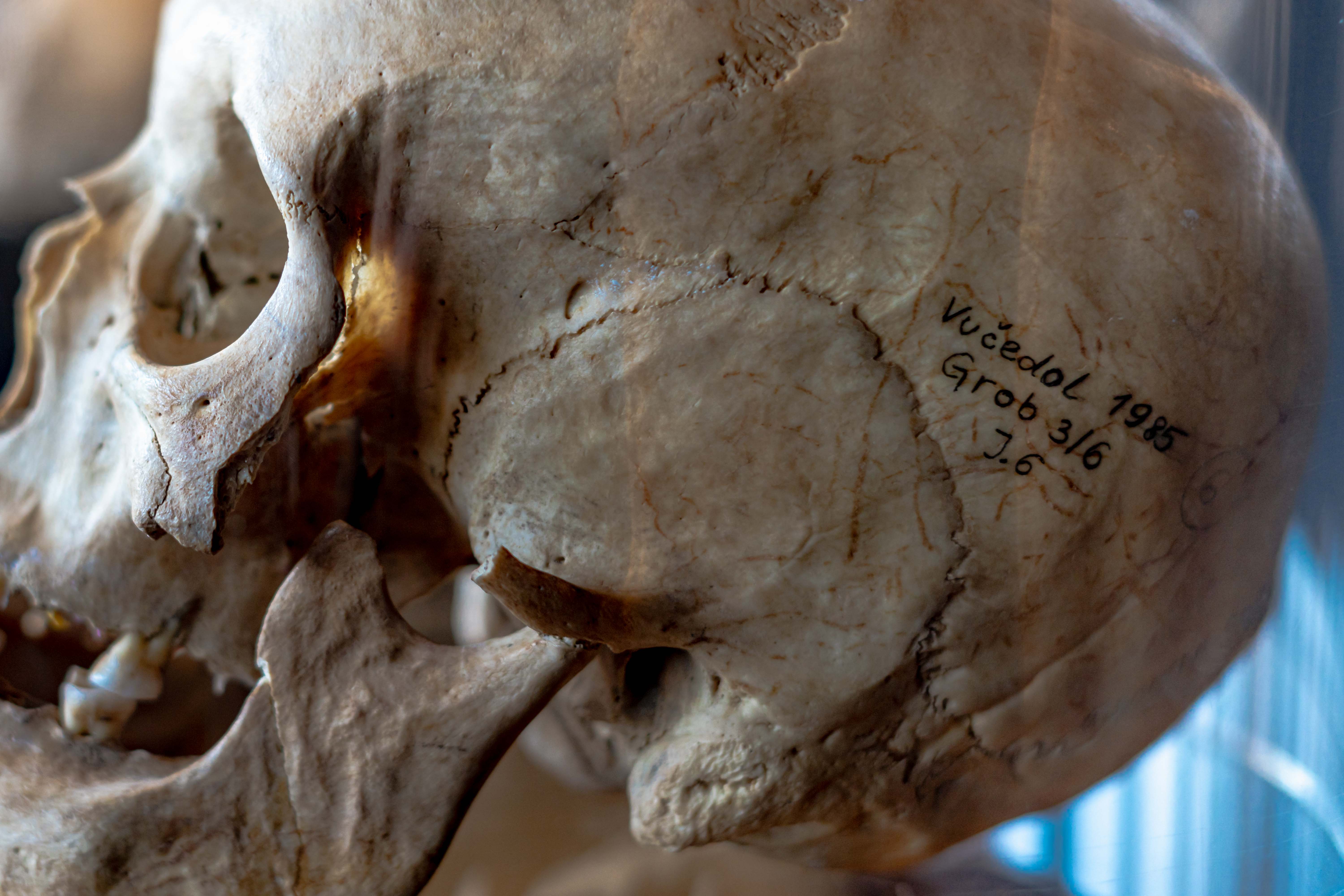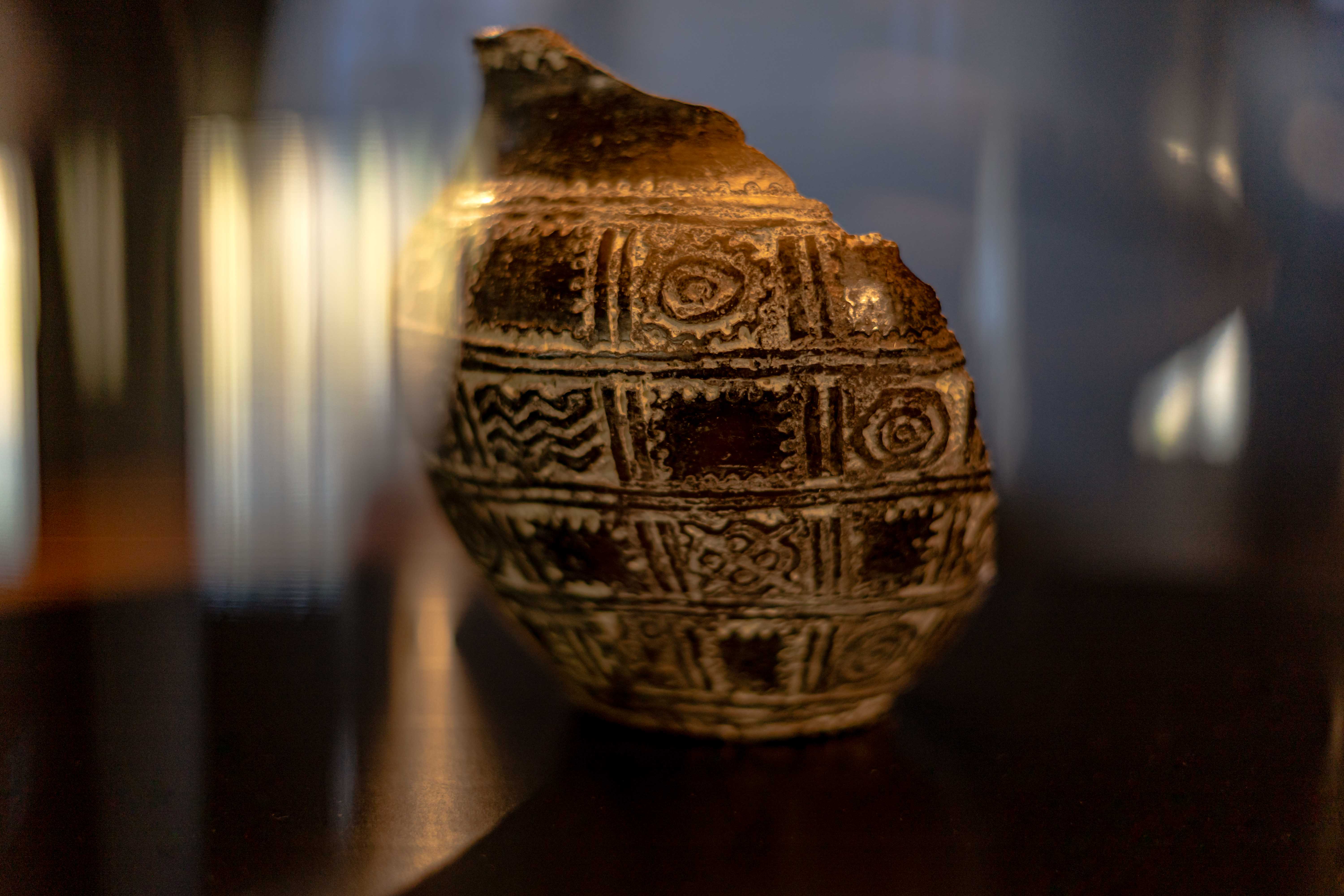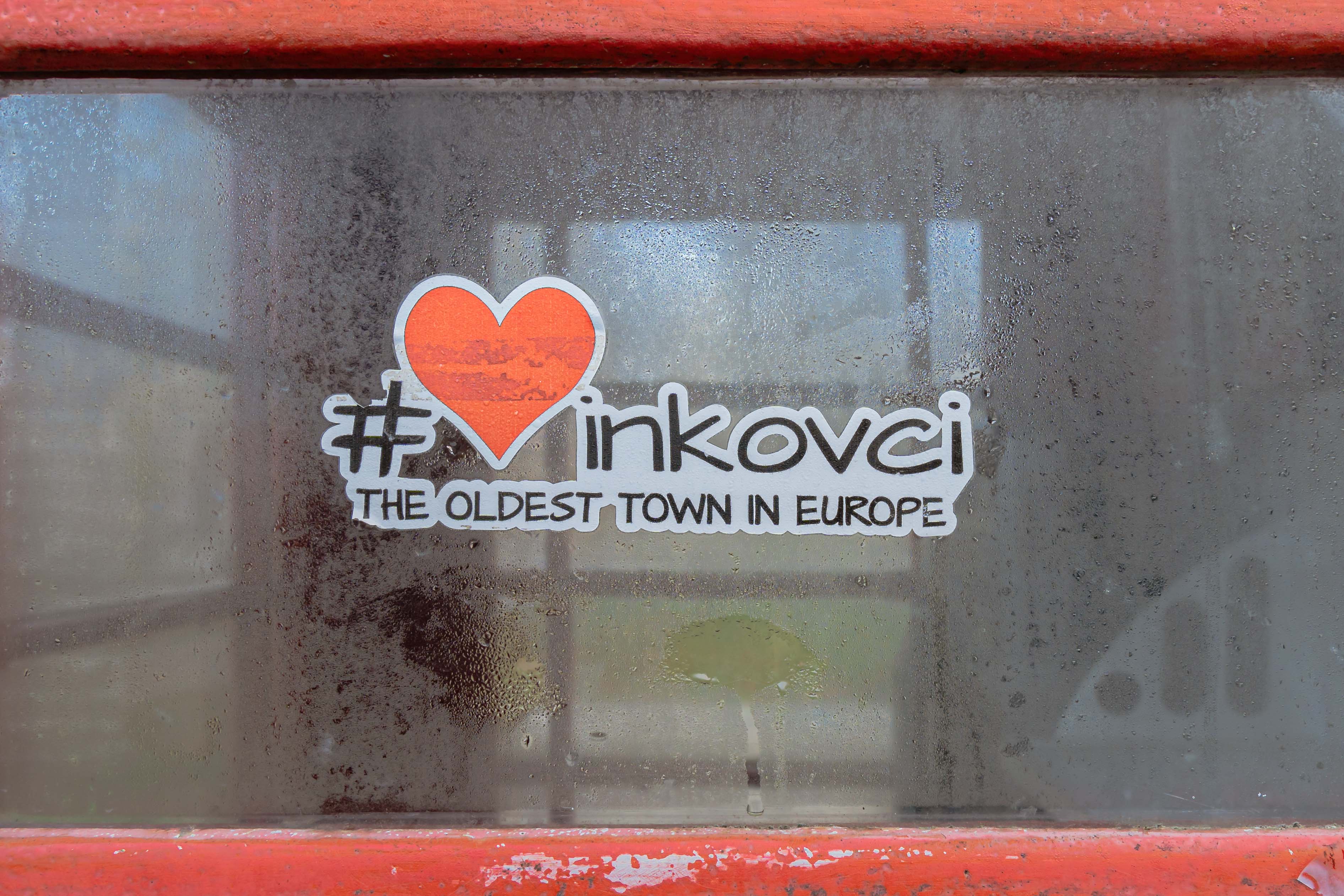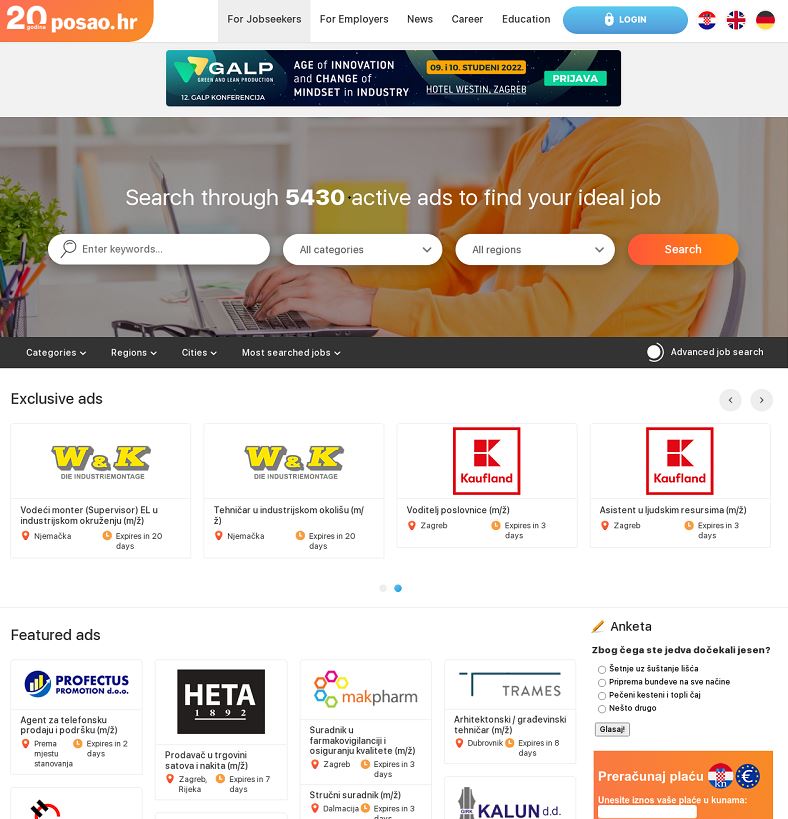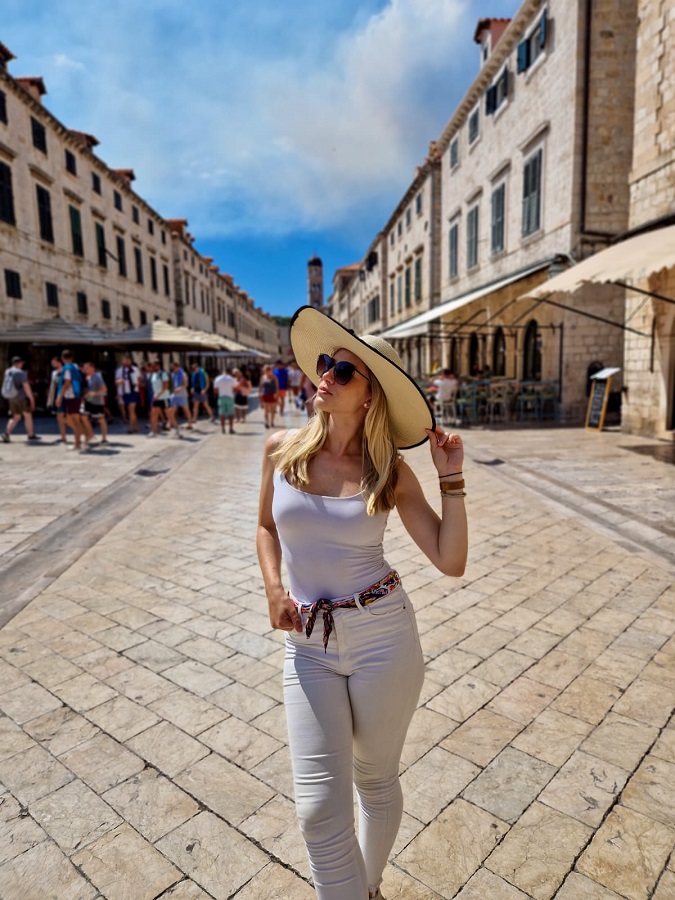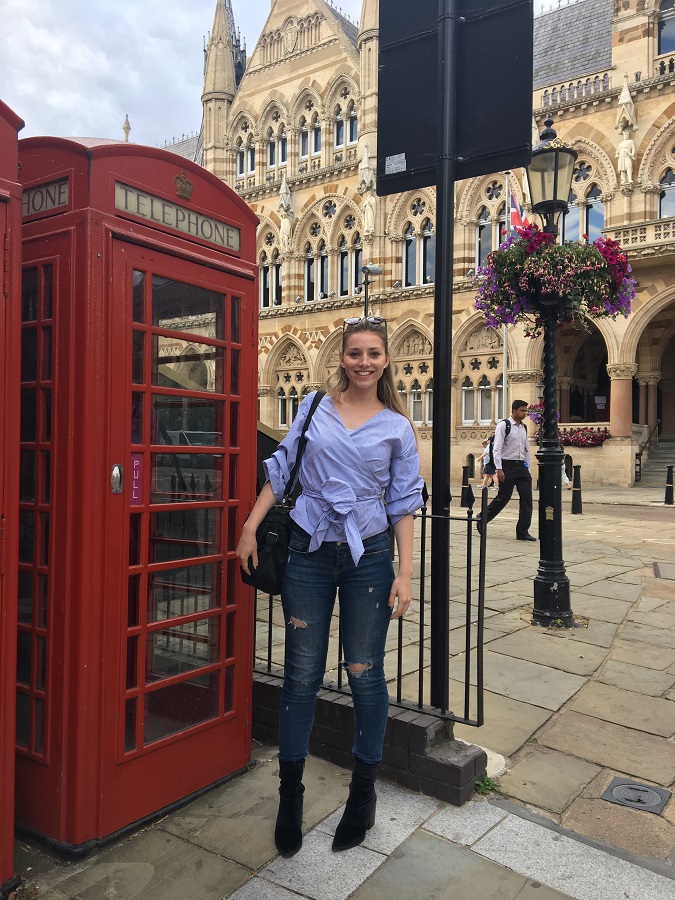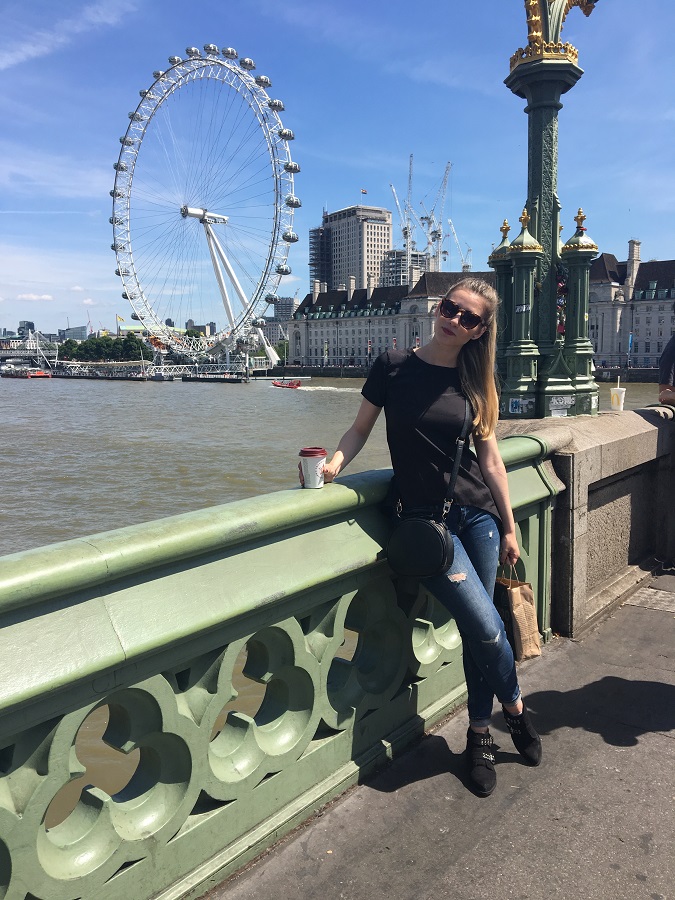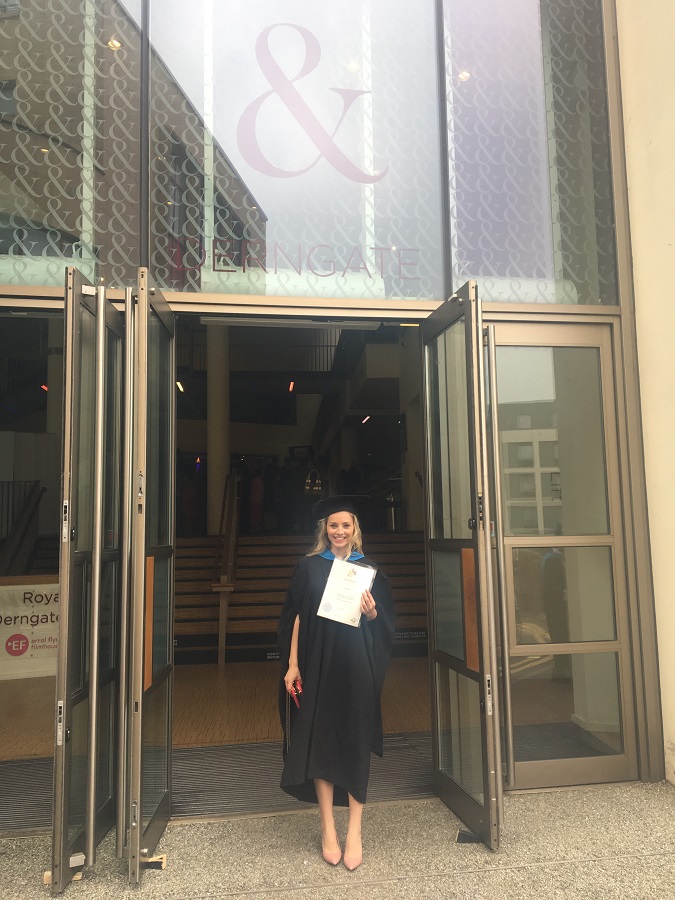Meet the Croatian Indiana Jones - Prof. Dr. Sc. Aleksandar Durman
October 20, 2022 – So there are places in Croatia where people have continuously lived for 8000 years. And there was a civilisation on the bank of the Danube 5000 years ago that knew the stars, seasons, and how much a standard door frame would measure today. Oh, and they drank beer. The fact that we know that and so much more we owe Professor Aleksandar Durman, the living legend of Croatian archaeology. We had the honour to meet the man himself and sit down with him for an hour of conversation, which included practical demonstrations of why the moon wasn’t a practical tool for the Vučedol people, a few trips down memory lane, and a discussion on the future of tourism in the Croatian east.
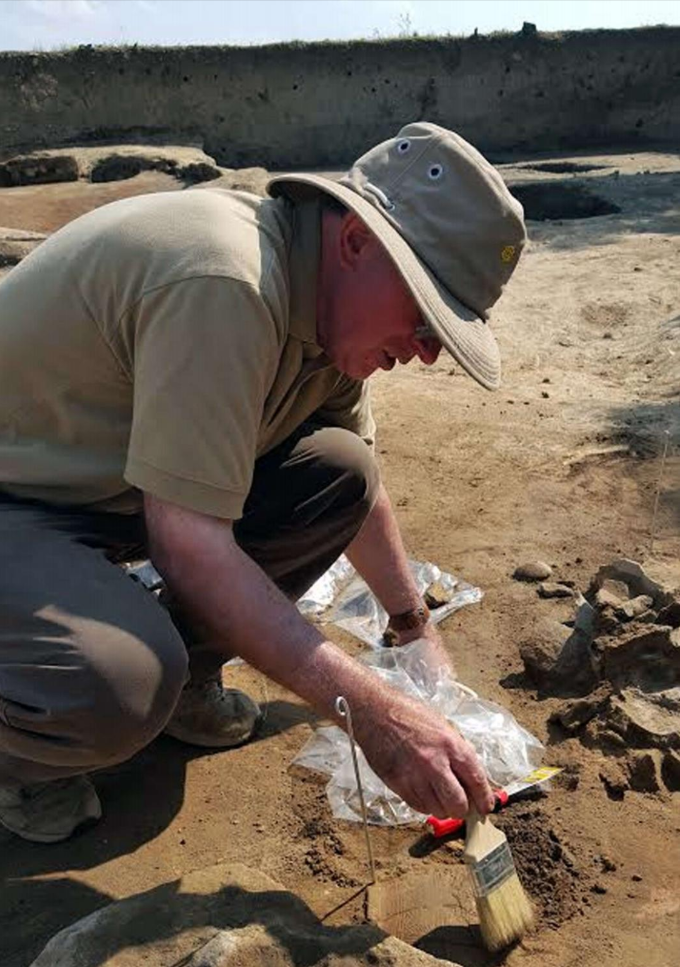
The man in action, Vučedol Culture Museum
Let us properly introduce the lively professor. He was born in 1949 in Zagreb, where he lived a happy childhood and studied archaeology and history. Asked about his interest in these areas, professor Durman says that archaeology came as a sort of plan B after he realised that he wasn’t that interested in physics which he initially planned to study. Archaeology seemed exciting and interesting, he adds, but since job prospects were scarce in the field, he decided to study history along with it. During his studies, though, he ensured that he was employed in archaeology and never looked back. When he was a student in the seventies, almost all the research was concentrated on the Croatian coast and the remnants of the Roman era that kept popping up there. Fair enough, he comments, but there was and is much more to discover in other parts of Croatia, primarily the east.
Steve Tsentserensky
And he went on to do just that. In his consolidated CV, there is a page just about his research projects in Vukovar and Vinkovci, where he started working in 1977 and kept coming back until his recent retirement. He received multiple awards for his contribution, including the Vinkovci Gold Plaque (2011), the Lifetime Achievement Award of the Croatian Archaeological Society (2013), and the title of an Honorary Citizen of Vukovar (2020).
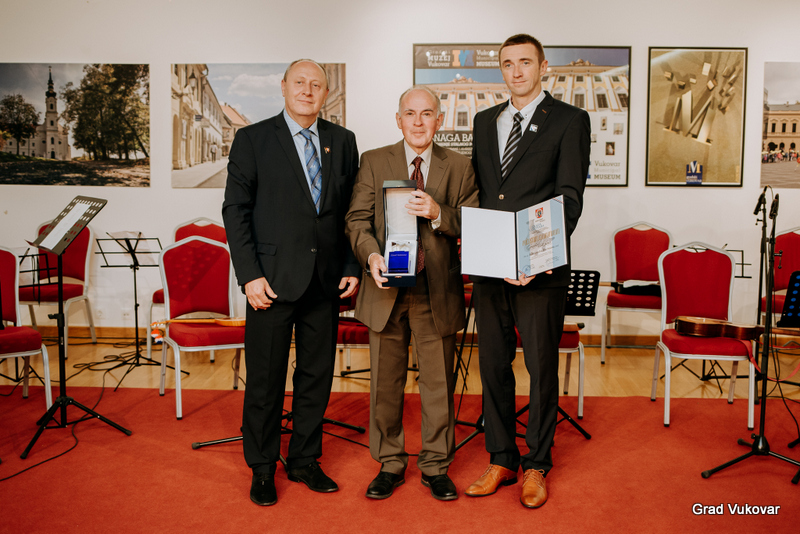
City of Vukovar
If you've heard anything about the Vučedol culture and the museum, it was probably about the famous bird. This ceramic dish was discovered there in 1938 and became a symbol of Vučedol and Vukovar. We mean, of course, the Vučedol dove that was later reclassified as the Vučedol partridge. Professor Durman changed its “name,” providing an excellent explanation. Without revealing it, we’ll say that it has to do with social hierarchy, the nature of the job, and what partridges do when they sense danger. You can see the original in The Archaeological Museum in Zagreb, but the Vučedol museum in Vukovar will provide all the context and insight to help you understand why an ancient civilisation, the contemporaries of Egypt and Mesopotamia decided to settle just there. At the risk of repeating ourselves, if you head east, make sure to visit this stunning location.
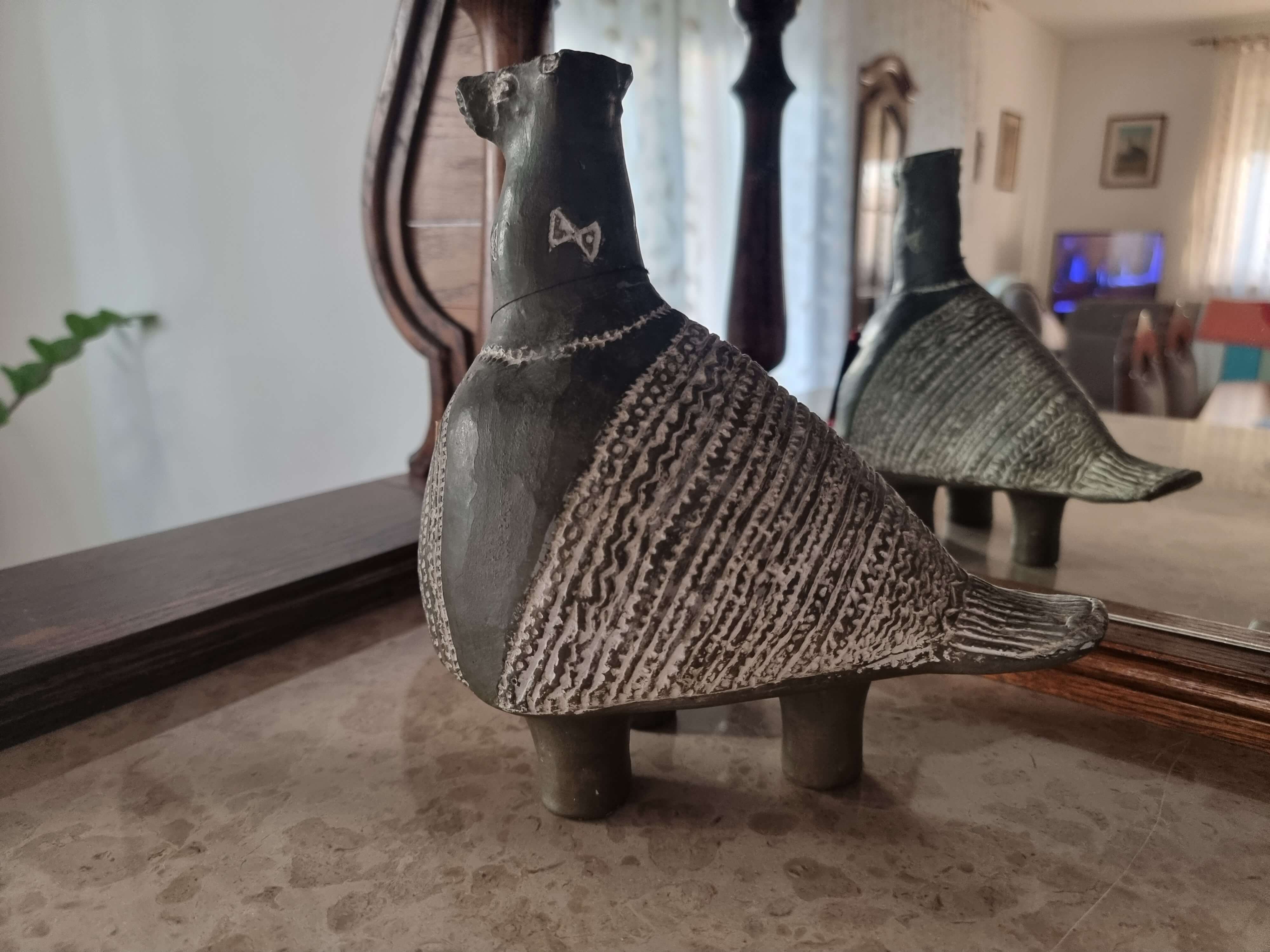
Back to our main character. An article about the professor wouldn't be complete unless we mentioned, possibly, his most significant discovery. That would be the Orion calendar which he discovered on the 21st of March in 1978. Fate, he says, having found it on the first day of spring. The little ceramic dish in question, according to professor Durman's interpretation, is one of the most significant witnesses of just how advanced the Vučedol civilisation was. The carved pattern on the dish apparently represents the night sky, with the four horizontal fields most likely dividing it into the four seasons.
The Orion calendar, Steve Tsentserensky
The incrustations inside the fields represent the constellations visible in the area in 2600 BC. The most important one, you might have guessed, was the Orion. It was the dominant winter constellation, and it was reliable – when the three stars of Orion's belt would fall below the horizon, the Vučedol people knew spring was there. And since they largely relied on their crops for sustenance, the first day of spring also signified the start of a new year and new life. The stars played a significant role in the daily lives of the Vučedolians as well as their spirituality. The Orion dish was found in a locality near Vinkovci and has become the symbol of that city.
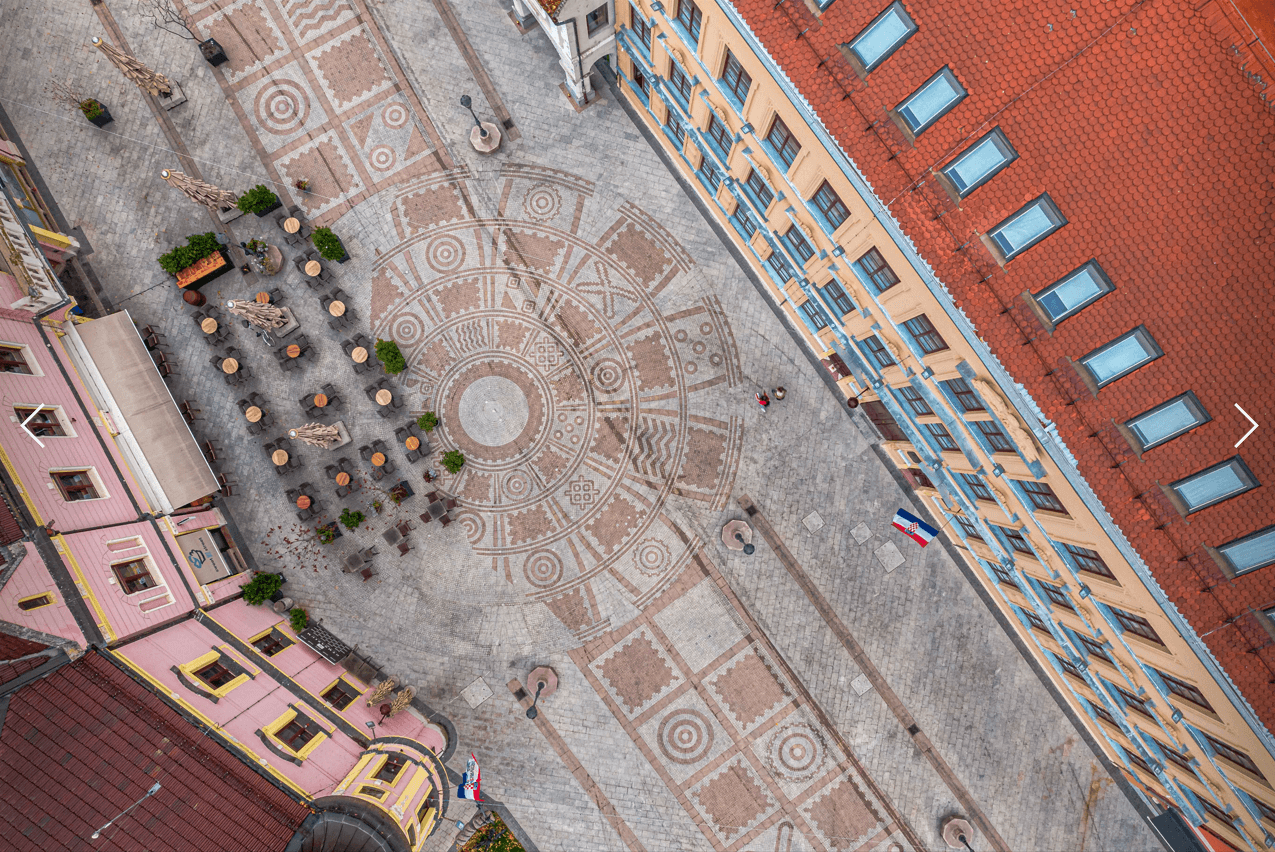
Orion calendar mozaic in Vinkovci city centre, Steve Tsentserensky
Speaking of, it is Vinkovci that takes another special place in our article and the books of Croatian archaeological research. You might have heard something about it being the oldest city in Europe, but that, we dare say, is an understatement. Professor Durman found evidence supporting the thesis that the area of Vinkovci has continuously been inhabited for over 8000 years. Fun fact, not one but two Roman emperors were born in Vinkovci – Valentinian and Valens, whose name is now synonymous with some excellent craft beer.
Steve Tsentserensky
To put all of this in context, let us quote the professor himself when asked how we should present his findings and demonstrate the importance of these areas to both those who live here and those who visit. “The Vučedol culture was the highest level of Indo-Europeans at the very beginning. They had a calendar; they knew metallurgy, and even the measurements for door frames that we still use today came from there. They had a pictorial writing system before the hieroglyphics. Just consider that all we know about Greek mythology had its roots in the Vučedol culture”. Now tell us that is not fascinating.
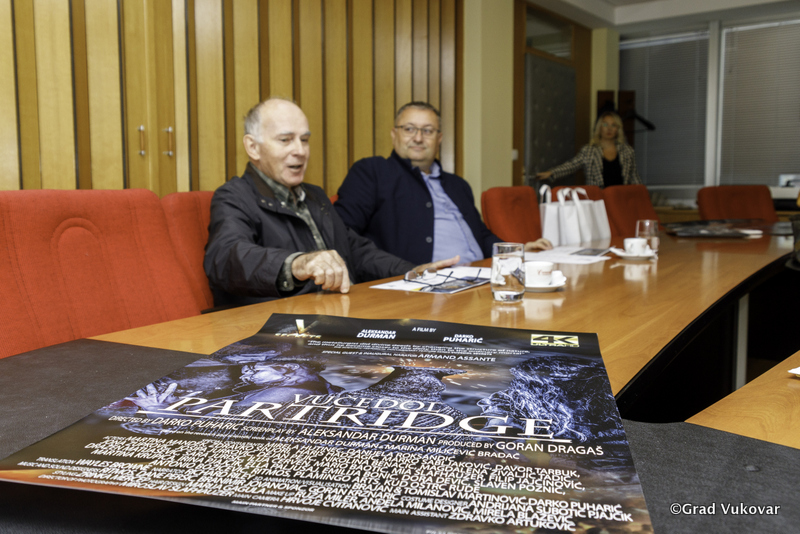
City of Vukovar
Finally, let us thank professor Durman for a unique, educational evening and his contribution to archaeology in Croatia, but especially in the east of the country. He has worked tirelessly to find, study and explain so much of what we know about the area today, and he has also travelled the world promoting it and emphasizing its importance. Among other things, he was a screenwriter for the Vučedol Secrets film, with its third part coming out soon. Naturally, we also asked him about the future of tourism in Slavonia, and we were happy to hear that he shared our view – the area is still a hidden gem, but its time will come. Archaeology and archaeological tourism will play a key role.
For more, make sure to check out our dedicated Lifestyle section.
Second Croatian Glovo Express Store Opens Doors in Zagreb
October the 18th, 2022 - The second Croatian Glovo Express store has opened its doors here in the City of Zagreb, more precisely on Zagrebacka cesta.
As Poslovni Dnevnik writes, Glovo, one of the world's leading applications for the delivery of multiple categories of products, including food from a very wide variety of restaurants, has opened a second Croatian Glovo Express store in the heart of the capital city.
This means that more than 2,500 different products from different categories are now available to customers from the western part of the City of Zagreb within the Glovo application, such as: fruit and vegetables, drinks, dairy products, snacks, sweets, personal hygiene products, home cleaning products, while the product range is listed exclusively in the Glovo application itself.
The first Croatian Glovo Express store was opened back in November 2021 on Zagreb's Radnicka cesta and, according to representatives of Glovo, it has been an exceptional success so far. The two stores in the City of Zagreb are strategically positioned to ensure optimal coverage of the Croatian capital, and users also have the option of personal pickup should they do wish.
"The launch of another Croatian Glovo Express store and the transition to a new, higher level of on-demand delivery is a key moment in time for us, but also a positive impact on the level of interest of our users. This is just a continuation of our focus on listening to our customers' needs and providing ultra-fast delivery for a wide range of products. Thanks to our well-organised in-store operations, our team will prepare a customer's order in less than three minutes and deliver it to their doorstep in less than thirty minutes. With this second store, Glovo Express' delivery area will cover more than 80 percent of the City of Zagreb, which is a guarantee ofthe quality and timely delivery of products to our customers," said Drago Cota, general director of Glovo Hrvatska/Croatia.
The working hours of the new Croatian Glovo Express store are from Monday to Sunday from 09:00 to 00:00 and as stated by Glovo, the plan is to further expand the network and assortment in accordance with consumer needs as we go forward.
For more, make sure to check out our dedicated business section.
Looking for a Job in Croatia? This Week's Top 10 from Posao.hr (October 29, 2022)
October 29, 2022 - Looking for a job in Croatia? A new weekly feature on TCN, in partnership with leading job site agency, Posao.hr, who present a selection of weekly job listings.
How hard is it to find a job in Croatia, and what is on offer?
We spoke to Ines Bokan, director of leading jobs site Posao.hr, who kindly took the time for this excellent interview overview.
Ines has kindly agreed to work with us on a new weekly feature on TCN - a weekly selection of 10 job listings, as chosen by Posao.hr. Details and links to the job opportunities below in the latest edition of this feature.
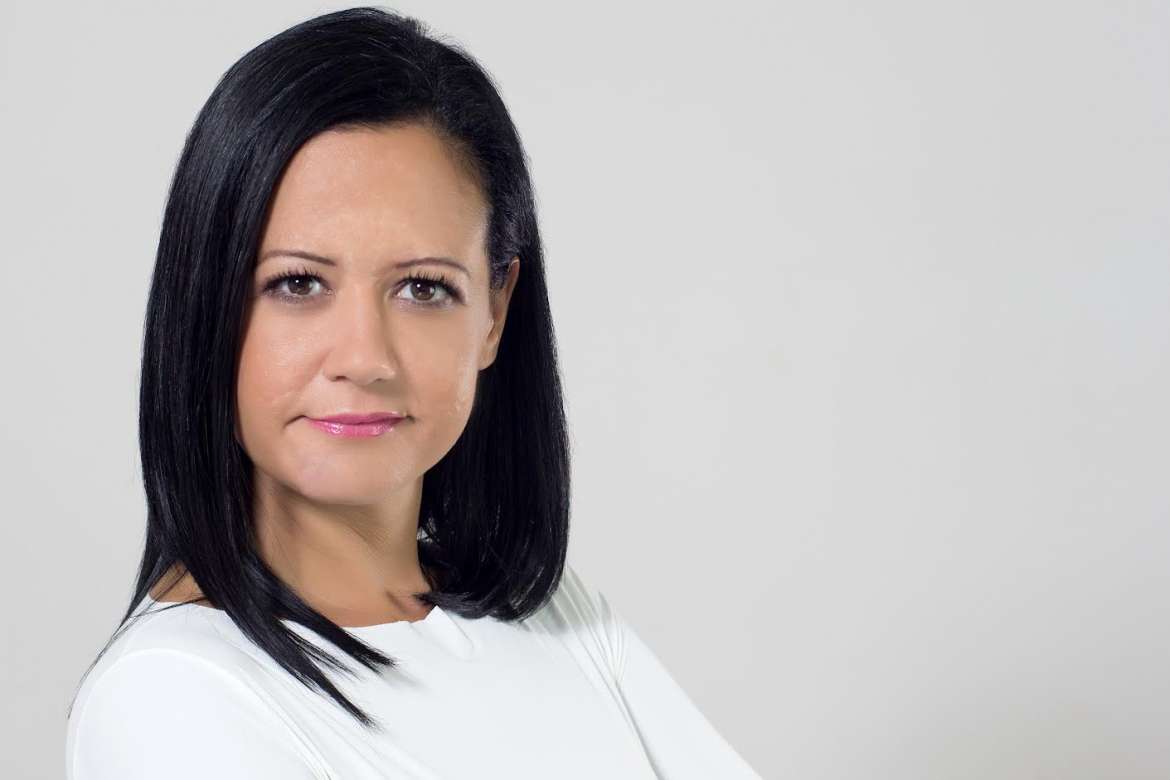
WEEKLY SELECTION OF JOB LISTINGS
Falkensteiner Hotelmanagement d.o.o. is looking for a Content Marketing Manager (m/f) in Zadar. The company is offering a competitive salary, all-inclusive onboarding, a buddy program, and much more! Apply by Nov 11th via this link.
Nielsen Media Research is hiring a Client Executive (m/f) in Zagreb. If you have proven years of work experience in the media or research industry, excellent knowledge of data processing tools and methods, as well as basic knowledge of information technology, this might be a great opportunity for you! Apply here by Nov 13th.
Workforce Ljudski Potencijali d.o.o., on behalf of their renowned client, is searching for an Automation Engineer (m/f) for work in Vojnić. If you are interested in this position, apply by clicking here until Nov 11th.
Gi Group Staffing Solutions is hiring a R&D Engineer (m/f) in Zagreb on behalf of their client, Paradox Museum. If you have an Engineering degree, pay attention to the details, are resourceful and innovative, this is a great opportunity for you! Apply here by Nov 7th.
Astellas is looking for a Key Account Manager (m/f) in the Split-Dalmatia County. All the information is available by clicking this link and applications can be submitted until Nov 18th. Good luck!
Eumetsat is hiring a Network Architecture Engineer (m/f) in Darmstadt, Germany. The company is offering an initial contract of 4 years, with subsequent 5 year contracts being awarded thereafter. Apply here until Nov 8th.
Addecco Hrvatska d.o.o. is hiring a Medical Sales Representative (m/f) on behalf of their client, Lundbeck. They are offering a permanent employment contract with a trial period, a flexible and motivating work environment, an attractive salary and bonus package, company car, mobile phone and laptop, continuous mentorship and guidance. Apply here by Nov 5th.
Next Step career network is looking for a Front Office Manager (m/f) in Vienna, Austria. The company is offering a net monthly salary of 2.000€, 14 salaries paid out a year, full social benefit and daily meals, hotel accommodation, and much more! Apply by clicking this link before Nov 13th.
tbo.com is hiring a Customer Service Specialist in the Travel Industry (m/f) for remote work. If you are service-oriented, fluent in foreign languages, independent, self-motivated and patient, this is a great opportunity for you! Apply here until Nov 4th.
CCPORTER Sp. z.o.o. is hiring a Sales Advisor with Croatian (m/f) for remote work. The company is offering a competitive basic salary with attractive bonuses, stable and attractive terms of cooperation, work from home, flexible working hours, all the necessary equipment sent to your home and specialized training! Applications can be submitted through this link until Nov 23rd.
For more career options and job listings, visit posao.hr.
![]()
These weekly job listings will appear in the weekly TCN newsletter - you can subscribe here.
****
What is it like to live in Croatia? An expat for 20 years, you can follow my series, 20 Ways Croatia Changed Me in 20 Years, starting at the beginning - Business and Dalmatia.
Follow Paul Bradbury on LinkedIn.
Croatia, a Survival Kit for Foreigners is now available on Amazon in paperback and on Kindle.
Health Minister Vili Beros: Covid Cost Croatia Almost 6 Billion Kuna
October 19, 2022 - Health minister Vili Beros said that the current epidemiological situation in Croatia is relatively stable and stated that the total cost of the coronavirus epidemic is close to six billion kuna.
As Index writes, while reporting to the parliament on the measures taken by Croatia against the covid-19 epidemic from January 1 to August 31, 2022, Beros pointed out that for the sixteenth day in a row, we have recorded a decrease in the number of newly infected people per day. The drop is significant and perhaps unexpected because the school year has already started, said Beroš, but he also warned that the epidemic is still around us and we must be careful.
He added that the majority of hospitalised patients are still completely unvaccinated citizens or vaccinated only with the primary vaccine, which indicates the need to increase the vaccination rate of citizens. He also presented the information that the Croatian Institute for Health Insurance paid almost six billion kuna from compulsory health insurance funds from the beginning of the epidemic until August 31.
"Although it is a large figure in financial terms, it is important to see that it cannot be considered a cost but an investment in the health and treatment of our citizens, which ultimately affects the performance of other sectors such as tourism and the economy," said the minister.
State Secretary Marija Bubas referred to the problematic statements in the media about vaccination, which certain opposition parties support. "Protests by various interest groups with their destructive messages have not caused any political damage to the government, but they are certainly causing damage to our citizens, who are still weighing out if they want to get vaccinated," she said.
To the opposition's criticism that Croatia has failed in the fight against the epidemic with regard to the mortality rate, Beros replied that statistics should take into account the demographic picture of the population, comorbidity, and the percentage of vaccinated people, which is still insufficient. The representatives were also interested in how many vaccines were ordered, how many were used, and how much it all cost.
9.7 million doses were acquired, 5.3 million doses were used, 4.4 million doses were unused, of which 1.1 million were donated, and 426 thousand doses were destroyed having had expired, the minister stated. Vaccination against the coronavirus will become lifelong, that is, constant, and it is necessary to keep buying new doses, said Beros. He did not provide an answer about how much it cost, pointing out that the vaccine saves lives and that the price is not important in that context. "The government will pay for everything necessary to provide Croatian citizens with adequate medical care, including the vaccine, so I won't tell you how much it costs; someone else will answer. We don't pay for it from the system; it is procured through joint procurement by the European Commission," he said.
The slogan should be changed from "get vaccinated, save others" to "get vaccinated, save the supplies," proposed Zvane Brumnic (Social Democrats). Beros also rejected Miro Bulj's (Most) claims that the Ministry of Health hides public purchases of medical equipment and vaccines like a snake its legs. "Everything is public and transparent, but there are elements such as the contract of the European Commission that do not allow us to communicate the price of the vaccine," he said.
For more, make sure to check out our dedicated Lifestyle section.
Croatian Forests: Here is How to Obtain Your Autumn Fruits Picking Permit
October 19, 2022 - The administration of Croatian Forests points out that in order to enter the forests and pick the autumn fruits they manage, you need a permit, which is free and relatively easy to obtain.
The season of forest fruits has started, and the pickers can do well this year, as confirmed by the story from a few days ago when a girl from Maruševac in the Varaždin area found a boletus weighing two kilograms. It is a nice mushroom to take a selfie with and earn your place in the media. And the fact that the chestnut festival in Sveti Ivan Zelina last weekend attracted as many as 10,000 visitors shows how much people enjoy autumn fruits.
As RTL reports, however, weekend pickers who want to spend a lovely day in nature and collect some chestnuts, mushrooms, or wild rosehips should be careful because they need a permit to pick. There are rules on how much can be taken out of the forest because, for example, a maximum of three kilograms of mushrooms can be picked daily.
"In addition to mushrooms, other forest fruits are chestnuts, aromatic, edible and medicinal plants, wild berries, etc. All collectors of forest products for personal needs can independently create a permit through our web application, which is published on the Croatian Forests portal, and you can find it HERE. The permit is issued for the current year and is valid until December 31 of the same year. It is issued by selecting the branch of the forest administration in whose area plants and mushrooms will be collected and then selecting legally available plants for collection. Legally available plants are those that are not considered strictly protected species, the list of which is defined by the Ordinance on Strictly Protected Species. The permit issuance is free of charge," Croatian Forests explained to RTL.
Easy enough? No worries, Croatian bureaucracy is always there to make it more interesting - a new license must be made for each branch, while the list of products on the permit can be expanded. "After the request is submitted, the system generates a permit in the form of a PDF, which is automatically delivered to the user's registered e-mail," Croatian Forests explain the procedure. The permit received by e-mail must be printed and carried with you.
For more, make sure to check out our dedicated Lifestyle section.
Norwegian Fund Offering Six Million Euros to Croatian Companies
October 19, 2022 - After the publication of the call for proposals by the Norwegian fund management, all interested parties will have two months to submit their applications, and the percentage of support will be determined depending on the size and location of the company, the type of investment, etc.
As reported by Poslovni, six million euros from the Norwegian financial mechanism will be available to Croatian entrepreneurs for investments in green technologies.
The company Innovation Norway, manager of the fund for the Business Development and Innovation Croatia programme, announced that in November, it will publish the third call for project proposals within the framework of the program financed by the Norwegian Financial Mechanism. The goal of the programme, which focuses on green industry innovations and "blue growth," is to increase competitiveness and encourage sustainable business operations in Croatian, primarily small and medium-sized enterprises.
A total of around six million euros will be available to Croatian entrepreneurs. Through the innovations of the green industry, they will be able to receive grants for the co-financing of innovative projects that contribute to reducing greenhouse gas emissions, reducing energy consumption, or saving other resources. Through the "blue growth" projects related to innovations in the coastal and maritime areas, the following will be co-financed - coastal and maritime tourism, maritime transport, fishing and aquaculture, marine waste and pollution, desalination, and other similar projects.
After the publication of the call, all interested parties will have two months to submit their applications, and the percentage of support will be determined depending on the size and location of the company, the type of investment, etc. Thus, for example, small companies that invest in equipment, depending on the area where they are located on the map of regional grants, will be able to receive up to 70 percent of grants from the total value of the project.
Large companies with a maximum of 25 percent public ownership can also apply but will receive a lower co-financing rate.
So far, 17 projects have been approved from this programme in the first call, and it is expected that another 21 projects will be approved in the second call.
Innovation Norway states that this programme for entrepreneurs represents a unique opportunity for cooperation, through access to new knowledge and modern technology with Norwegian partners, through partnership on projects, and other forms of collaboration.
More information on the possibilities of co-financing from the Norwegian Financial Mechanism can be found at www.innovasjonnorge.no/Croatiainnovation and by inquiry at This email address is being protected from spambots. You need JavaScript enabled to view it..
For more, make sure to check out our dedicated Business section.
Croatian Returnee Stories: Ida Hamer, from Northampton UK to Zagreb
October 19, 2022 - Whisper it quietly, but more and more people are relocating to Croatia from the diaspora. In a new TCN series, we meet them to find out how they are faring and what advice they have for others thinking of making the switch. Next up is Ida Hamer, who moved from Northampton UK to Zagreb.
Unlike most of the returnees in this new TCN series who lived abroad for decades, my journey as a foreigner was much shorter but extremely valuable to me. Today I’m a television reporter and a journalist – but almost 10 years ago, I was a girl with a dream to study abroad. I was born in the capital of Croatia, Zagreb. I had only just turned 19 when I finished high school and moved to the UK to study Multimedia Journalism at the University of Northampton. All by myself, without knowing a single person there, that “adventure” was exciting and frightening at the same time. The life experience I gained there is something I would never obtain or experienced if I had stayed in Croatia, and it is something I will always appreciate. However, after graduation, my heart said – it was time to get back home.
1. You made the switch to Croatia. Tell us a little about the decision process and how long it took for you to get on the plane.
When I decided to return home, it was also a time when many of my peers in Croatia decided to move to another country. So, my decision wasn’t quite popular and was surprising to many. It took me a bit of thinking whether “should I stay or should I go.” But when I graduated, the decision came naturally to me. I was ready to pack my UK experiences and memories in my luggage and start a new chapter at home.
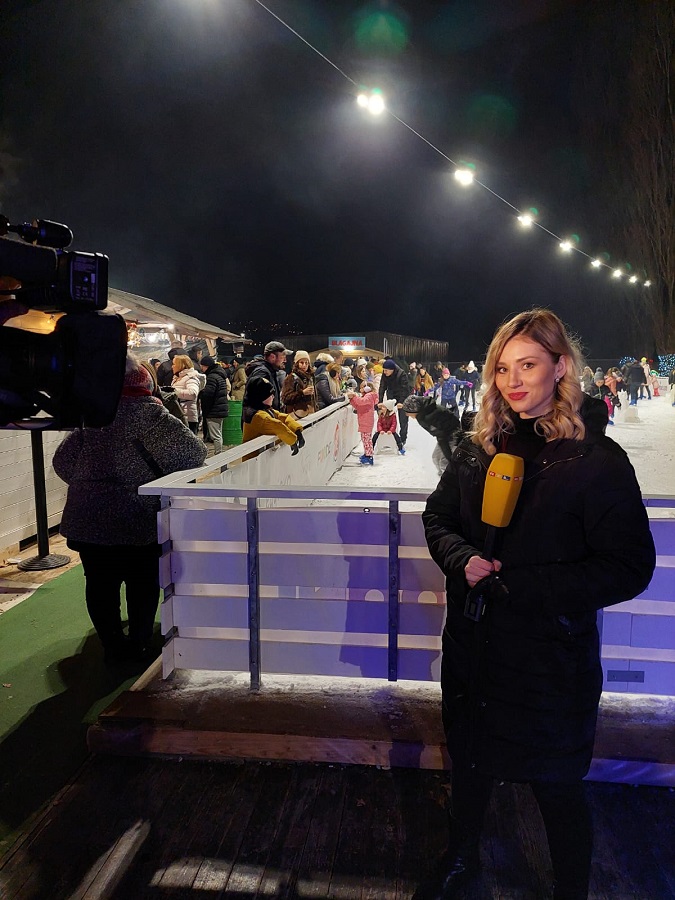
2. What did your family and community back home think of your decision at the time?
My family was supportive. They knew this decision was mine to make. However, there were those who were surprised. Some thought it was a great decision; some thought that I must be, well, crazy. Many expected I would continue my life overseas since I finished University abroad. And even though that seemed a bit discouraging, given the atmosphere in the country at the time, I did understand where this questioning was coming from.
3. Where did you get your information about the realities of Croatia prior to coming?
I knew mostly everything because I lived in Croatia prior to moving to the UK, however, now I saw things from a different perspective. I understood that some things at home might be a struggle, but I also felt that anything is possible for a person who is willing to work hard. When I was leaving Croatia, even as a teenager, I was frustrated with corruption, nepotism, bureaucracy, and, in general, the bad atmosphere in the country. But living in the UK also made me realize all the positives that Croatia has. I missed the sun and the seaside, Zagreb’s city center, coffee culture and our humor, and all those little things that make life here nice. So, when I moved back here, at first, I saw everything through rose-colored glasses, which also wasn’t good.

4. What were you most nervous about making the switch? What was your biggest fear, and what was the reality of what you found?
My biggest fear was – what if I ever regret moving back to Croatia? Up until now, I still haven’t.
5. Think back to the time before you arrived. What were your perceptions about Croatia, and how were they different from the reality you encountered?
At first, my perception was colored pink. Now, I look at everything much more realistically.
6. You are still here, so obviously, the pros outweigh the cons. Tell us about some of the things that you love about being in Croatia, as well as some of the things you don't like.
I love that people here socialize, spend time with each other, talk, and laugh. I appreciate that I feel safe on the streets of my city. I love the life I built for myself here since I returned. I like that I can be at the seaside in two hours if I wish and can also visit all the neighboring countries in a couple of hours too if I decide to make a quick weekend getaway. On the other hand, and like most young people here, I dislike nepotism and corruption. I dislike how slowly things are changing for the better around here. For example, population decline has been one of the hot topics here for many years now, yet we do not see a systematic effort to tackle this challenge. There is definitely not enough effort put into getting young people to stay here. And while the population is facing a decline, the number of people living in poverty is increasing. This is a sad reality for a state with so much potential.
7. What advice do you have for others thinking about making a move from the diaspora?
Connect with people online and talk! There are so many different pages where people who went through similar experiences will happily share it with others and answer all the questions.
8. How do you think Croatia can better assist those who are looking to return to the Homeland?
Firstly, I have to say I applaud all the people behind websites that are offering advice and resources to foreigners and the diaspora on how to live and work in Croatia. They are untangling many Croatian bureaucratic entanglements that are foreign not only to foreigners or the diaspora but also to Croatians who live here. These people are taking a lot of burden off the government, as people are finding the right answers on those pages rather than contacting and asking these questions the relevant government offices. However, I do hope that one day the Croatian government will have a similar page where all the resources will be in one place and where it will be clearly outlined what services the country provides and where. I really hope the government will make the bureaucratic procedures simpler and that most things will be able to be done digitally. Until that beautiful, sunny day happens, if moving to Croatia, arm yourself with patience and humor.
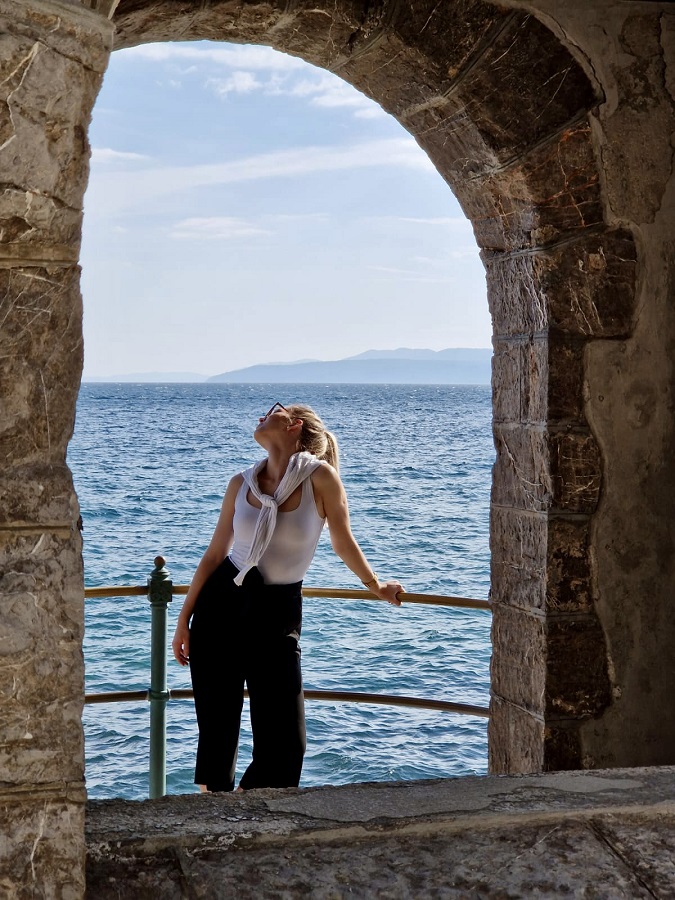
****
Thanks, Ida, and good luck with https://idahamer.com/
https://www.linkedin.com/in/ida-hamer-026461111/
****
You can follow the TCN Croatian Returnees series here.
****
What is it like to live in Croatia? An expat for 20 years, you can follow my series, 20 Ways Croatia Changed Me in 20 Years, starting at the beginning - Business and Dalmatia.
Follow Paul Bradbury on LinkedIn.
Croatia, a Survival Kit for Foreigners is now available on Amazon in paperback and on Kindle.

100 Million Kuna Makarska Apfel Arena to Open Doors Tomorrow
October the 19th, 2022 - The much anticipated Makarska Apfel Arena is set to open its doors tomorrow, marking a new start for that part of Central Dalmatia with this 100 million kuna investment.
As Poslovni Dnevnik/Marija Crnjak writes, the Makarska Apfel Arena sports and cultural centre, known as a socially responsible business project, will officially open its doors this Thursday.
The Pasalic family, which has been supplying Makarska catering and hospitality firms for a number of years now, invested about 100 million kuna in this project with the aim of making the new Makarska Apfel Arena not only a place for the hosting of various sporting, cultural and artistic events, and a space for business and health facilities, but also to provide the entire Makarska Riviera with added value and stimulate new development.
The project is unique in the Republic of Croatia not only in terms of what sort of content it has on offer, but also because the investor doesn't even expect a return from this very large investment. This is also not the first socially responsible project this particular company has engaged in, given the fact that just last year, they built two buildings with sixteen apartments, which it then sold far below the market price to its own employees in order to solve their housing issues.
Matko Pasalic, the executive director of the company Apfel, which was founded by his father Mijo Pasalic, stated that Apfel also built the first house for a single family after the earthquake in Petrinja back in December 2020, which fully coincides with the company's policy.
"On the land in Makarska, we could have built apartments for commercial sale and sold them at a price higher than 3,000 euros per square metre, which is the current average price of property in Makarska, but it was important for us to take care of our employees. We invest a lot in the satisfaction of our 120 workers, who have always earned higher wages than the average, and it's important for us to invest in the community, which was the main motive for this investment in the Makarska Apfel Arena. We saw that Makarska was lacking when it came to such facilities and created a centre that will have several functions, and although we'll generate income there, we don't expect a return on this investment. Financial profit wasn't our goal," explained Pasalic.
The core business of the Pasalic family company is the wholesale of food and beverages in the HoReCa segment in Makarska, where they generate about 80 percent of their income, while the rest is made up of inventory equipment for the catering and hospitality industry. Although they generate most of their income during the summer tourist season, all 120 of their employees are employed full-time. Although the coronavirus pandemic threatened them like it did with everyone else, there were no layoffs or salary cuts, Pasalic pointed out.
Last year, the company Apfel generated an impressive 214 million kuna in revenue, with a profit of 16.7 million kuna, while before the pandemic, their annual revenue stood at 235 million kuna.
In the new Makarska Apfel Arena, another 25 people will be employed permanently and about 10 will be provided with part-time work, and 80 percent of the workers have already been found without any major difficulties, the executive director revealed. The new cenre spans a total of 14,000 square metres, of which 4,300 square metres are interior space, and the project that will unite culture, sports and healthcare was created by the company "Lukic Projekt".
When Mijo Pasalic initially presented the project back in February this year, the planned amount of investment was 80 million kuna, but due to known circumstances on the market and inflationary pressures, that figure grew to around 100 million kuna. Matko Pasalic revealed that part of it was realised with the company's own funds, and part was realised through loans provided by commercial banks.
Makarska will finally get a proper cinema
A Mediterranean garden spanning 3,500 square metres with three gazebos and a barbecue was created on the outside of the new Makarska Apfel Arena, where people are free to organise various celebrations and get-togethers with prior notice. There is also a children's park, a field with artificial grass for indoor football, as well as a tennis court with a hard surface. In the 4300 square metres of the inner part, there is a playground, another field with artificial grass, and behind it a padel tennis court, a children's playroom, while in the middle of the centre there is a cafe and a pizzeria with an indoor and outdoor terrace.
On the first floor of the Makarska Apfel Arena, there are three fitness halls and gyms, in which the Pasalic family invested 2 million kuna, and they are equipped according to standards that will satisfy both recreational and professional athletes, according to Matko Pasalic. In the eastern part, there is a multimedia hall with 360 cascading seats for concerts, congresses, plays and events, and there will also be a cinema, which Makarska has never had before.
They're also bringing doctors to the new centre
The healthcare department and its accompanying offices are located on the second floor. The company opted to provide healthcare services and while there will be a nurse and a physiotherapist present, they'll also cooperate with 10 specialist doctors who will perform various examinations there, so that the people of Makarska don't have to go to Split for their more advanced healthcare needs. Blood sampling will also be organised there, which is especially important during the height of the tourist season when the need for medical services is increased.
During the presentation of the project, Mijo Pasalic pointed out that part of the programme was conceived as year-round, and part as only seasonal. The year-round activity plan includes the organisation of seminars and congresses, the hosting of plays and concerts, cinema screenings, offers of basic and specialist healthcare services, daily fitness programmes, children's birthday parties, a sports school foy young kids, team sports held on indoor and outdoor sports fields, and the organisation of team building sessions for companies.
For more, make sure to check out our dedicated business section.
Council of the Croatian National Bank Warns About Economy Slowing Down
October 18, 2022 - The Council of the Croatian National Bank (HNB) stated on Tuesday that indicators point to a slowdown in economic growth in the third quarter of this year and next year.
The economic statistical indicators indicate the possibility of a decrease in economic activity in the third quarter of 2022 compared to the previous quarter, i.e. a strong slowdown in real growth compared to the same quarter last year, according to the press release from the HNB Council session. They note that business and consumer expectations worsened, industrial production decreased in July and August compared to the second quarter, and turnover from retail trade stagnated. The employment growth slowed down, yet the administrative unemployment rate in July and August was slightly lower than in the three previous months. In the mentioned two months, the growth of nominal gross wages also slowed down, while real wages continued to decrease, the HNB states, adding that on the other hand, indicators in tourism point to record achievements in the third quarter.
In an environment of significant worsening of economic prospects accompanied by strong inflationary pressures and uncertainty regarding the prices and availability of energy sources, economic growth could slow down from the expected 5.5 percent this year to one percent next year, the HNB estimates. The annual inflation measured by the consumer price index accelerated to 12.8 percent in September, from 12.3 percent in August, the statement further states, but also adds that towards the end of the year, inflationary pressures are expected to weaken, partly due to energy price control measures. Thus, the HNB estimates, inflation in 2022 could amount to 10.3 percent on average, while in 2023 it is expected to slow down to 6.7 percent due to the effect of the base period, the gradual decrease in the prices of raw materials on the world market, the easing of stagnation in supply chains and weakening demand.
Croatia will enter the eurozone at the beginning of next year during the European Central Bank's tightening monetary policy cycle, which will negatively affect the financing conditions of the domestic economy. However, the reduction of the required reserve ratio and the abolition of the minimum foreign currency liquidity, which the Croatian National Bank has already decided on, will strongly increase the banks' free cash resources and act in the direction of mitigating and slowing down the deterioration of financing conditions on the domestic market, the central bank says.
The coordinated global tightening of monetary policies increased the borrowing costs of most countries, while the increase in yields on Croatian government bonds was nevertheless significantly milder than in the countries of Central and Eastern Europe outside the euro area, thanks to the favorable effects of the imminent introduction of the euro. For now, bank interest rates have not increased either on new or existing loans to companies and households. However, the cost of repaying loans with a variable interest rate could gradually increase, especially for those tied to Euribor, which has already risen strongly, which will be mitigated in the short term by the legal limit on the highest interest rates on consumer loans. The apparent increase in interest rates on new housing loans, along with the pronounced uncertainty and decrease in real incomes, also increases the risk of a reversal in the residential real estate market, where prices and activity continued to grow strongly in the first part of the year.
Will Ukrainian Soldiers Get Training in Croatia? President Says "No"
October 18, 2022 - As has often been the case recently, there is discord between the Croatian Ministry of Defence and President Milanović regarding Croatia participating in an EU project to train Ukrainian soldiers.
As numerous international media reported earlier, European Union foreign ministers signed off on Monday on a military assistance mission to train 15,000 Ukrainian personnel in various member states. Croatian media reports that the key roles in the mission are those of Germany and Poland, as well as the Baltic states and Slovakia. Telegram.hr asked the Croatian Ministry of Defence whether Croatia is ready to participate in the program, and they've received a quite broad, but positive reply. "The Croatian army continuously conducts its own training. Within the framework of the existing training, we are ready to receive foreign participants, all in accordance with the plans and legal procedures", their reply reads, suggesting that the Politico's report which lists Croatia as one of the participating countries might be correct.
Well, not so fast, if you ask the President of Croatia, Zoran Milanović, and the journalists did ask him exactly that today. Index.hr reports that he told the press that he is not familiar with the idea of Ukrainian soldiers being trained in Europe, but in principle, he does not support the training of "military manpower" on Croatian soil because it would mean involving Croatia in that war more than necessary. "I don't support that idea because I don't support involving Croatia in this war more than it should. It's bringing the war to Croatia. We are fair, we stand in solidarity and that's it," he said. If the Ministry of Defense of the Republic of Croatia agrees with such an idea, Milanović tells them in advance: "Let's not go for it". "As the commander in chief (of the Croatian Armed Forces), I will not approve it," he said. He praised the courage of the Ukrainian army, which is not a member of NATO, but which has been getting a lot of support from NATO and some NATO members. "They train, finance, supply" (...) "so NATO is a factor 100 percent involved in the war in Ukraine. That is a fact". He will not say anything against it, but if it includes further Croatian involvement, he will be against it, he said.


